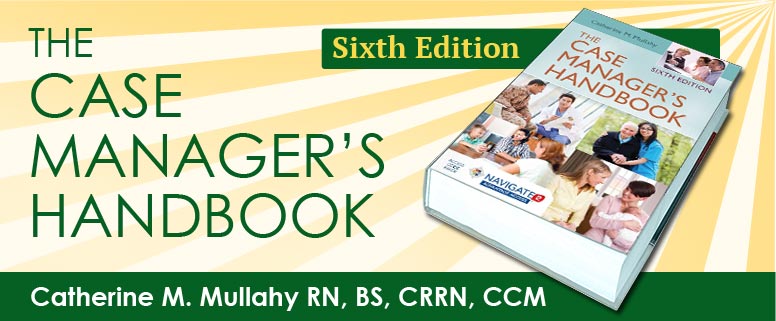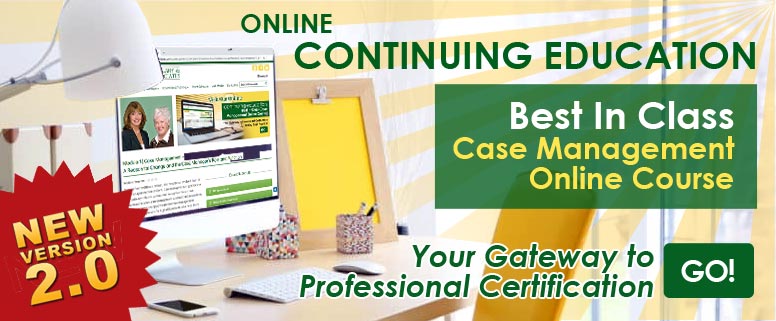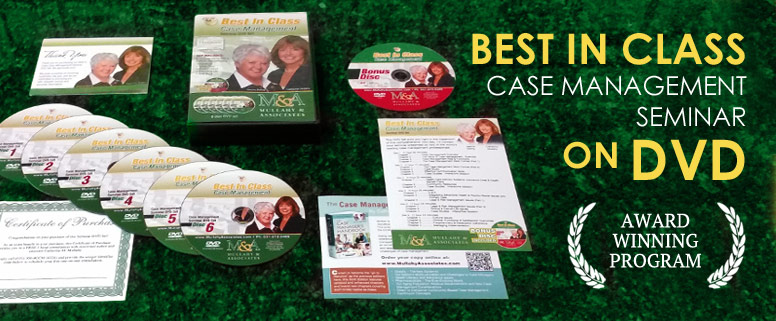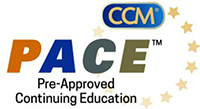We are passionate about you learning everything you need to know regarding “Best in Class” case management practices, so we offer options to accommodate different personal learning styles. Our Learning Management System is another way for you to access vital information that will increase your knowledge, enhance your skills and expand your career opportunities.
Professional Case Management I-IV
Best in Class Case Management Online Course 2.0
Each option in the Course Content section below represents one of the four Groups in the Professional Case Management online series. Complete each Group in order (I, II, III, and IV). Each Group consists of several Modules (14 in all).
To begin
- In the Course Content section below, please click on the first Group: Professional Case Management I-IV Course | Group I: Modules 1-3
- Beginning with Module 1, work through each Module reviewing all content, video and any course materials (PDFs).
- After successful completion of the Module Test, please progress to the next Module. You must achieve a grade of 75% or higher on each Module test to move to the next Module. Progress of completed Modules will be marked from a grey to a green indicator.
- After completing the Group’s last Module, you’ll be returned to this Course page. Please proceed to the next Group.
- Your progress will be saved automatically and you can return to any Group or Module at any time. Please proceed working through all Groups until the Group IV of the Course has been completed.
After completing Group IV
- Please proceed to the Tests section below to complete the final Course Evaluation to give us insight into your thoughts about the Course.
- You must complete and submit the Course Evaluation before you can access the Course Certificate of Completion.
- Once complete, a Course Certificate of Completion badge will appear on the course. When clicked, you can then download and print your Course Certificate of Completion.
Module Descriptions
Even before healthcare reform, the need for an evolved form of case management was evident. Case managers must get back to their primary roles in patient care, recognize the distinct differences between case management and utilization activities, and then become strong advocates for case management intervention, especially for high risk patients who need them most. This updated edition discusses the confusion surrounding role fragmentation, (i.e., care coordinator, navigator, discharge planner, etc.) and underscores the importance of title protection (i.e., not everyone can or should be a case manager); the confusion all these titles have created, and most importantly, the true distinction held by the title “case manager” as evidenced by the stages of this role’s development and status attainment as a true profession. Also provided is a video illustrating the patient-centered medical home.
Learn why and how case management must maintain its core principles and values, while advancing within our healthcare system’s continuous changes. Gain insight into why this is important in order to fulfill case management’s most vital mission — to help facilitate the best patient care and outcomes.
Learn the requirements for CCM case manager certification and the details of applying for and preparing for the exam, study resources and examples. This edition includes helpful study tips and a video illustrating exam preparation and strategies for success.
Are you frustrated by the mixed and conflicting messages you’re receiving on your role as a case manager? The role of a case manager is complex; however, there are codes of ethics and conduct, as well as best practices that you as a professional case manager should be following. Learn what a case manager’s role should and should not entail.
As with any professional role, there are procedures and policies to follow which enhance outcomes. For case managers, there is a proven process to apply which satisfies the many objectives of the role, from facilitating patient care and collaborating with other health care professionals, to managing insurance and containing costs.
Learn the most effective processes. This updated edition provides information about the Social Determinants of Health and their increasing importance as we work with our patients; video illustration of true care coordination and its impact on achieving the Institute for Health’s (IHI) Triple Aim, as well as dynamic discussion of the essential activities and core components of case management. Additionally, other videos demonstrate the value of discharge planning, and post discharge follow-up and transition of care. A Group Case Study and facilitated discussion allows you to understand just how to apply the case management process.
When it comes to communicating effectively, case managers must be masters. They need to know what and how to communicate with patients and their families, physicians, other professionals involved in the patient’s case, as well as insurers and plan sponsors. Often, there are ethical considerations, risks to weigh and always the need to communicate clearly and with sensitivity. Learn how to improve your communications across the patient’s continuum of care (i.e., from in-hospital to discharge and after), and become an even better advocate for your patients. In this new edition, two videos are provided: one which demonstrates empathy in communication, and another one which illustrates real patients and their health literacy issues. From these valuable videos, you will understand just how important it is to master these real barriers.
Baffled by our nation’s bloated health care system and its many forms of insurance and benefit plans? You’re not alone, and following health care reform, it’s become even more complex. As a case manager, you must have a good working knowledge of the entire health care system in order to best serve your patients’ needs and meet your employer’s expectations. Learn the basics here, including a light-hearted depiction of health insurance 101 and another illustrating the basics of Workers’ Compensation.
Being a strong advocate for your patients also means knowing what resources are available within the community and how best to access them. In addition to entitlement programs, there are many resources which can help patients and their families cope with a challenging medical condition. Learn about these resources, especially when so many are impacted by the social determinants of health, and the importance of partnerships with community partners, so that you can make a greater difference in the lives of your patients and their families.
There is no better learning lesson than a real life case study. For most case managers, the best education comes from their fellow case managers sharing specific patient cases and how they managed them. Gain important insights and take-away practices from these case studies which reflect challenging circumstances that you may face one day. Each of the four studies will provide an illustration of just “how” to apply the case management process, and strategies that you will be able to utilize in your day-to-day practice.
Case managers are on the front line of health care integration. They play a vital role in managing behavioral health issues and integrating these issues into a patient’s primary care. Especially for patients with multiple chronic conditions including those affected by their health behaviors such as obesity, diabetes and smoking, case managers must become adept at addressing their patients in a holistic manner. Learn the implications of the complex patients’ behavioral health issues and how best to integrate them into their primary care for optimum outcomes. This new edition discusses the ACE (Adverse Childhood Experiences) and their impact well into adult lives and the opioid crisis, both of which represent a “call to action” for today’s case manager.
The landscape of case management is filled with land mines ready to set off an explosion of legal issues and related liabilities. For case managers, it can be like walking a tightrope. To avoid being an unwitting party to a preventable risk (e.g., negligence, confidentiality breach) or lawsuit (e.g., malpractice), case managers must become proficient in the legal and risk associated nuances of their role. Here you will gain a solid foundation on which to build this imperative knowledge. This updated edition provides a discussion and updated information regarding the Nurse Licensure Compact Legislation and its impact on case managers practicing in multiple states, as well as a video and discussion involving the use and misuse of social media.
On daily basis, case managers find themselves facing troubling ethical dilemmas relating to their role as case managers. Are you really serving in your patients’ best interests? Does your professional code of conduct conflict with your employer’s expectations? Are you adhering to your professional code of ethics? Learn more about the ethical issues in case management and your responsibilities as a case manager. We provide several case studies which illustrate ethical challenges you, too, may face and strategies that you can utilize in your own practice.
America is a real melting pot and its multiculturalism is growing. Today, there are higher percentages of more ethnic groups being treated in our health care system. Caring for patients representing different cultures presents new challenges for case managers. There are cultural nuances to recognize, dietary issues, religious factors and much more. To best serve patients of different ethnic and cultural backgrounds, case managers must gain an understanding of how cultural differences will manifest in their patients’ attitudes toward health care and patient care. Learn more about this here. A truly compelling video will forever change the way you view your patients and will reawaken your caring heart.
Benchmarking the performance of a case manager starts with the case manager himself/herself. Knowing how to measure important clinical, functional and satisfaction criteria in the context of outcomes is vital. Learn how to stay ahead of the performance curve across all of these areas. Recognizing that each practice setting will need to create its own outcomes, we discuss and guide the “how-to’s” of that process. A video illustrates the importance of patient-reported outcomes, the importance of evidence-based guidelines, and the inclusion of patient satisfaction surveys as an essential component of the overall outcomes from case management.
Helping their patients adhere to their treatment plans is an important function of the case manager. When it comes to pharmaceuticals, the opioid crisis and medication prescription adherence, many patients need extra motivation, education and monitoring. Learn what case managers can do to assist in these vital areas. In this revised edition, discussion and videos illustrate both the issues surrounding polypharmacy from a patient’s perspective, and the challenges involved in medication management, as told by patients explaining how this affects them. You will recognize the increasing importance of the role of the pharmacist as members of our teams.
Do you have a system in place for implementing your case management services? It’s important that you do and that it encompasses the full scope of the care plan, from the initial assessment and goal setting to ongoing monitoring. Learn how to recognize the stages of change in your team, as well as strategies to manage the implementation of your case management plan.







